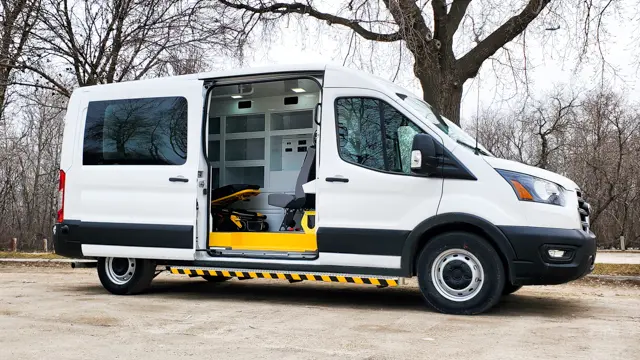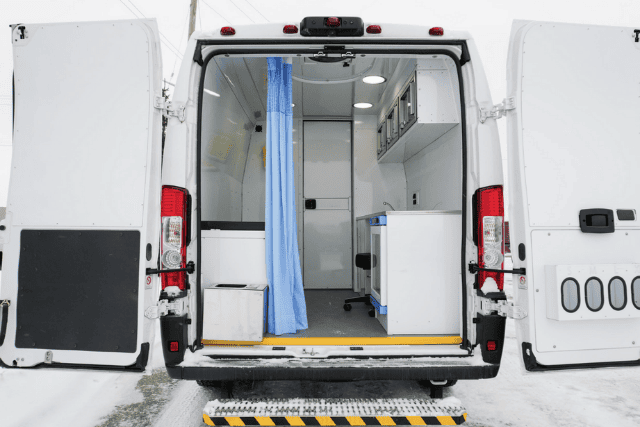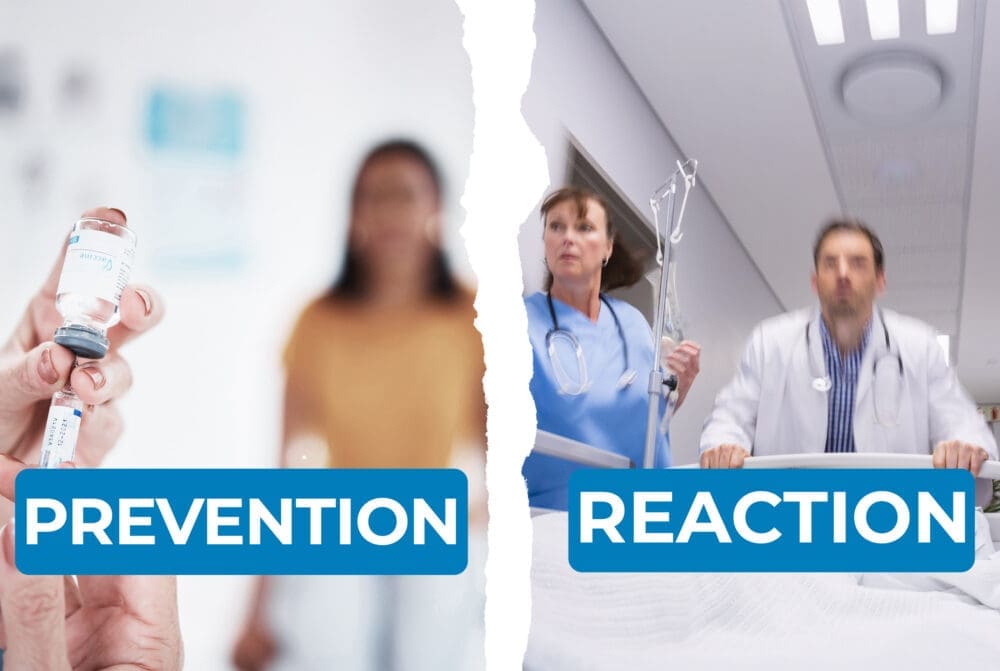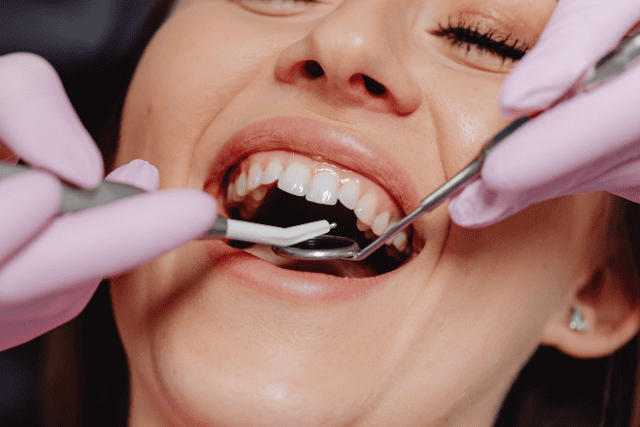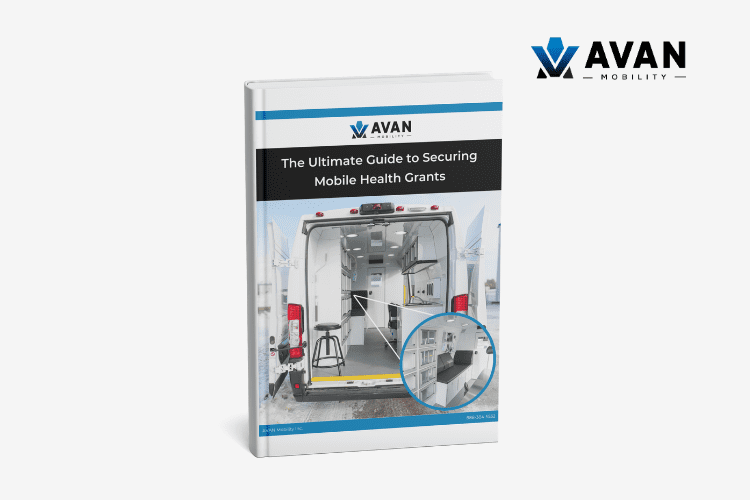Are you trying to help remote communities in America get access to healthcare?
Are you trying to find a patient-transfer option for non-emergencies so that you don’t have to call an ambulance when you don’t need it?
Do you provide a harm reduction service to your community?
Then, a mobile medical unit could be the right fit for you.
At AVAN Mobility, we have 4 different mobile medical units–all designed by our technician experts.
In this article, you’ll learn the 5 advantages of getting a mobile medical unit, and you’ll take an in-depth look at the 4 mobile medical units we have at AVAN Mobility.
5 advantages of mobile medical units
There are many advantages of getting a mobile medical unit, but these are the big 5:
1. They prevent emergency room visits by providing a safe, non-emergency transportation option for clients
A mobile medical unit prevents an estimated 600 emergency room visits per year, according to the Mobile Health Map.
They do this by bringing healthcare to individuals where they are, eliminating the need for them to find healthcare elsewhere or not find any at all. People can get the healthcare they need before their health issues become emergencies. This is commonly referred to as preventative care.
As a result, hospital resources (such as staff and equipment) continue to go toward those who need them the most, and individuals don’t need to travel long distances to get the help they need.
2. They provide accessible healthcare to remote communities
Accessible healthcare for remote communities has been an issue for a long time.
People in rural areas typically have to travel a significant distance to access the services they don’t have access to in their own communities.
A mobile medical unit can alleviate this issue because people don’t have to travel long distances to get the healthcare they need–the mobile medical unit can come to them.
3. They improve health outcomes by providing healthcare before health issues become an emergency
Mobile medical units are flexible enough to offer a variety of preventative health services. They can help with small-scale services, such as vaccinations, or larger-scale services, such as detecting early signs of cancer in patients.
Mobile medical units can help patients discover health issues early, giving them more time to get the treatment they need.
4. They build trust between underserved communities and healthcare providers
A mobile medical unit can be the first step toward rebuilding the relationship between an underserved or remote community and healthcare providers.
5. They can be customized to fit your community’s needs
Whether you need a mobile medical unit to access remote patients, transfer non-emergency patients from one location to another without calling an ambulance, or provide a safe space where patients can seek out the help they need–you can customize your mobile medical unit to best suit your needs.
For example, you can make your mobile medical unit a “doctor’s office on wheels” and provide a clinic space that goes to remote patients across the U.S.
Or, you can make your mobile medical unit a supervised consumption site to mitigate overdose deaths in your community.
The possibilities are nearly endless.
Now that you know some advantages to getting a mobile medical unit for your community, you may be wondering what kinds of medical units we have at AVAN Mobility.
Read on to find out.
4 types of mobile medical units
At AVAN Mobility we have 4 types of mobile medical units you can choose from and customize to make your own.
The mobile outreach van
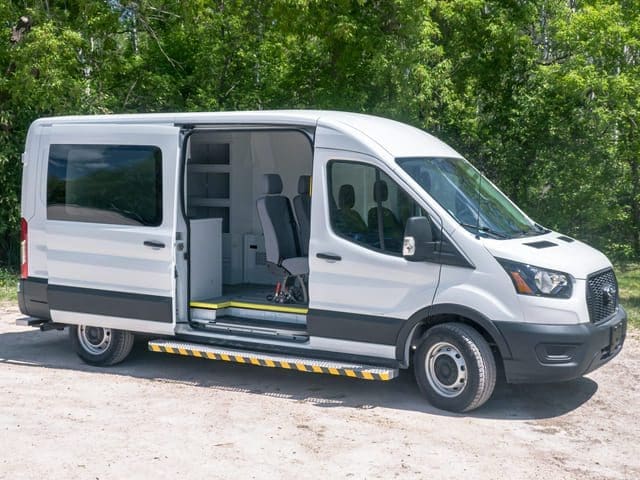
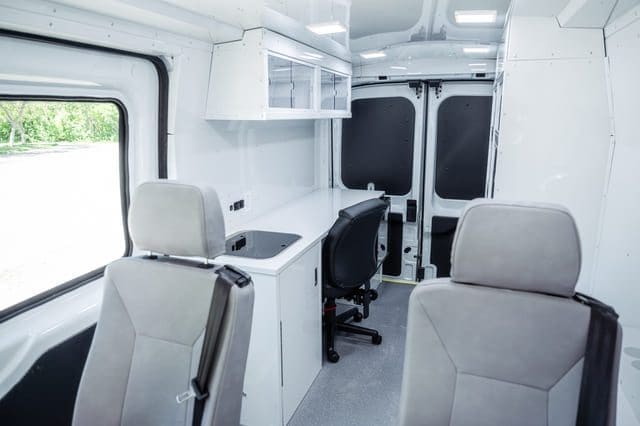
The mobile outreach van–also known as the MO Model–is both a transportation option and a clinic space all at once.
Outreach vehicles are used by programs that provide services such as:
- Housing
- Mobile health
- Harm reduction
- Referral services
- Overdose prevention
- Mental health and addictions counseling
The mobile medical clinic van
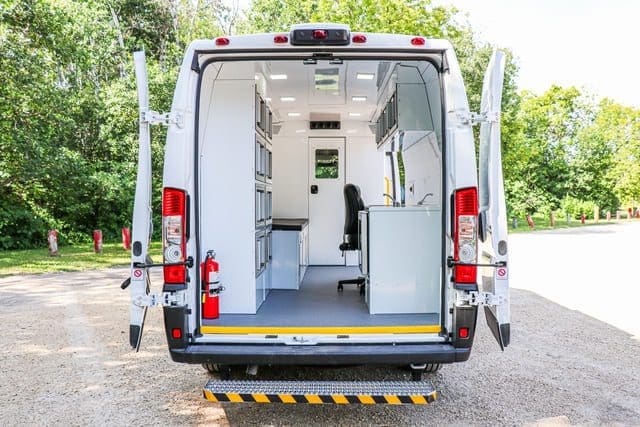
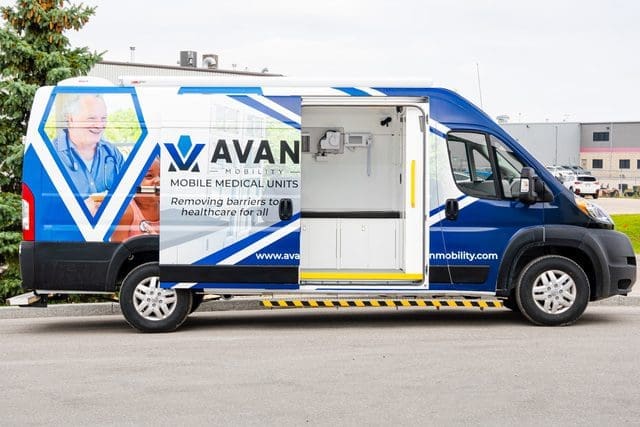
The mobile clinic van–also known as the MC Model—reduces health disparities in vulnerable and remote populations. These vans eliminate the need for patients to travel to a clinic, bringing the clinic to them instead.
Mobile clinic vehicles are used by many different groups, including:
- Native reservations and Indigenous communities
- Housing and homeless societies
- Addictions services
The mobile non-emergency/response medical van
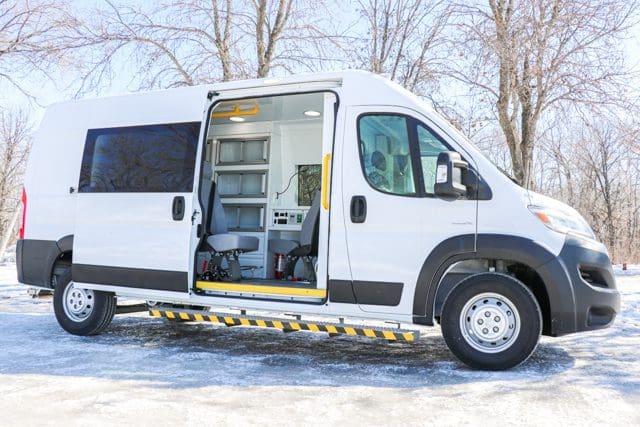
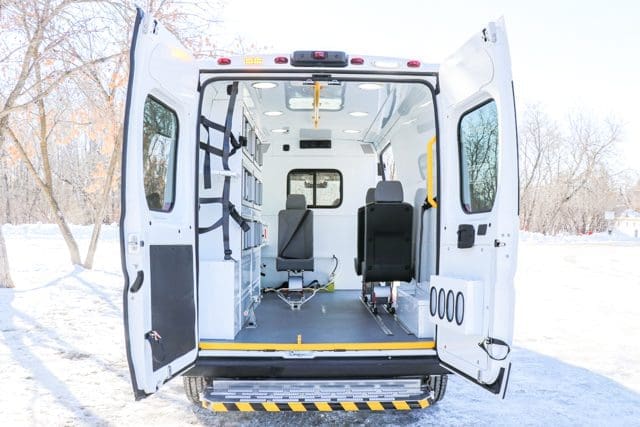
Think of the mobile response van–also known as the MR Model–as an ambulance alternative.
This mobile medical unit has a simple treatment space for non-urgent medical needs and transportation.
The MR Model is used by many different groups, including:
- Native reservations and Indigenous communities
- Housing societies
- Homeless and addiction programs
- NEMT services
- Industrial safety providers
The overdose prevention/mobile mitigation van
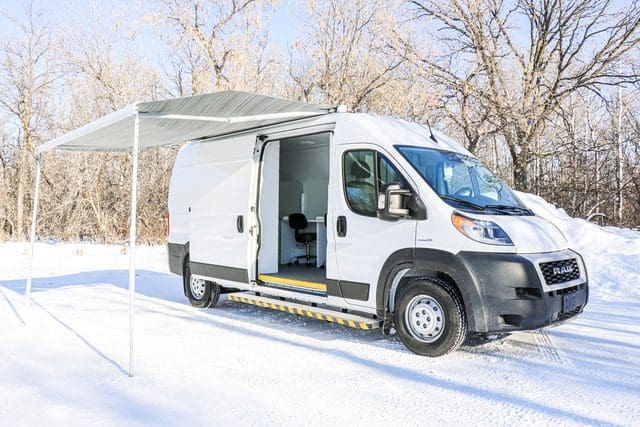
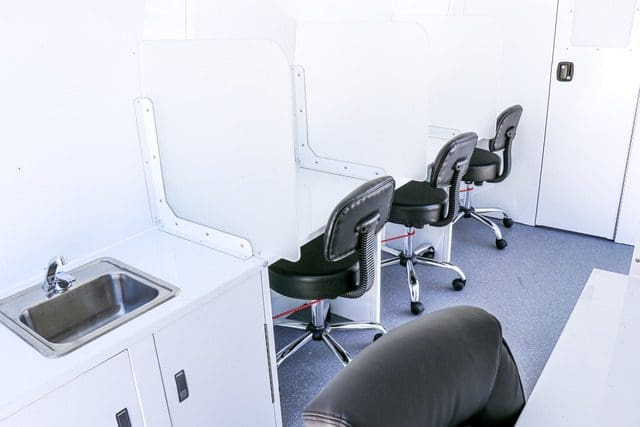
Think of an overdose prevention van–also known as the MM Model–as a mobile supervised consumption site.
It’s a safe space where a medical professional or social worker can monitor clients’ use of substances and respond to medical needs as they arise.
The MM Model is typically used by outreach programs, mobile overdose prevention programs, and harm reduction programs.
Your next steps to getting a mobile medical unit for your community
You came to this article to learn what the advantages are to getting a mobile medical unit for your organization or community.
Now, you’ve learned the 5 advantages of getting a mobile medical unit and the 4 major types of mobile medical units.
Request a demo of one of our mobile medical units now.
Or, take a look at these related resources:
